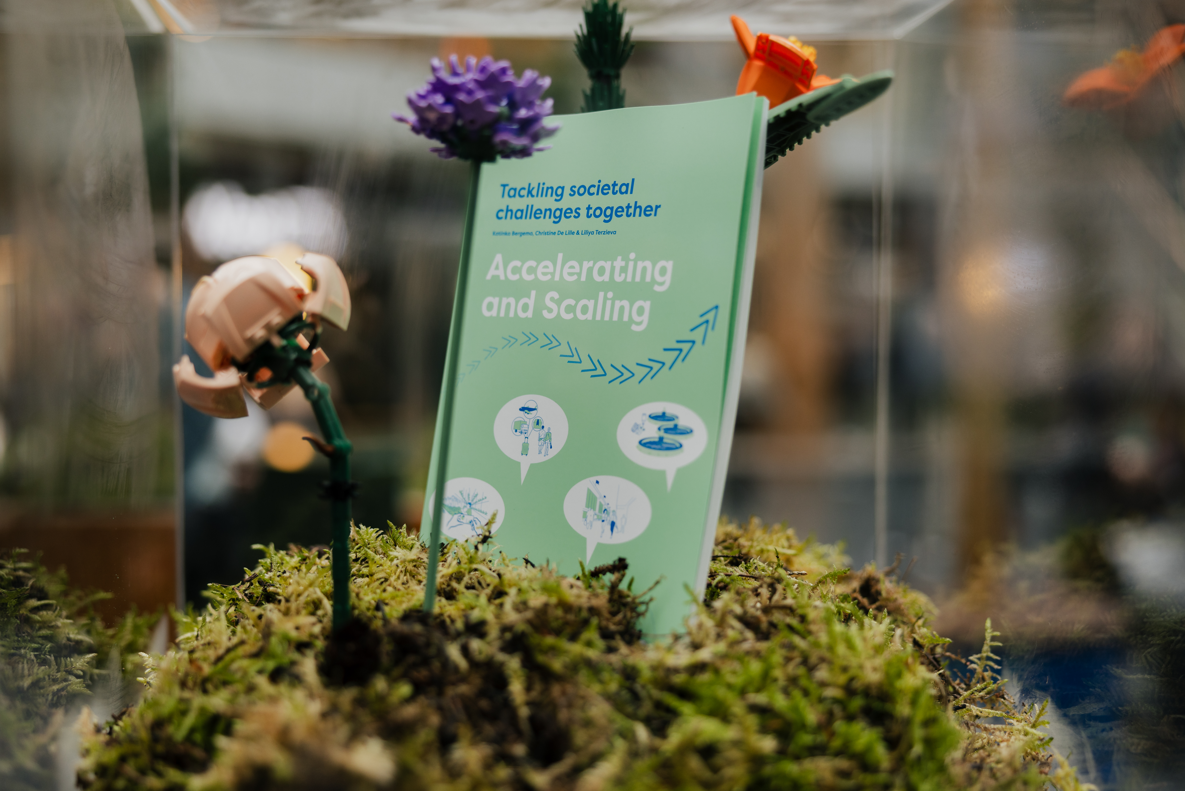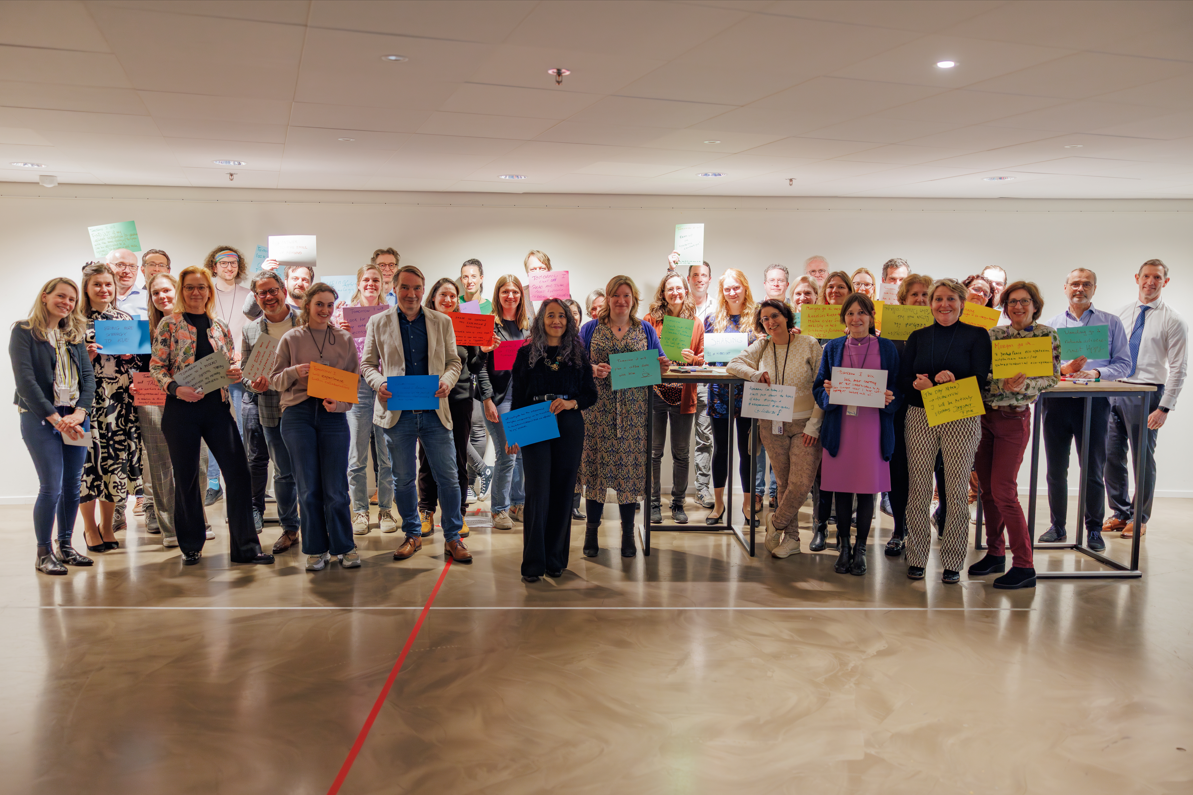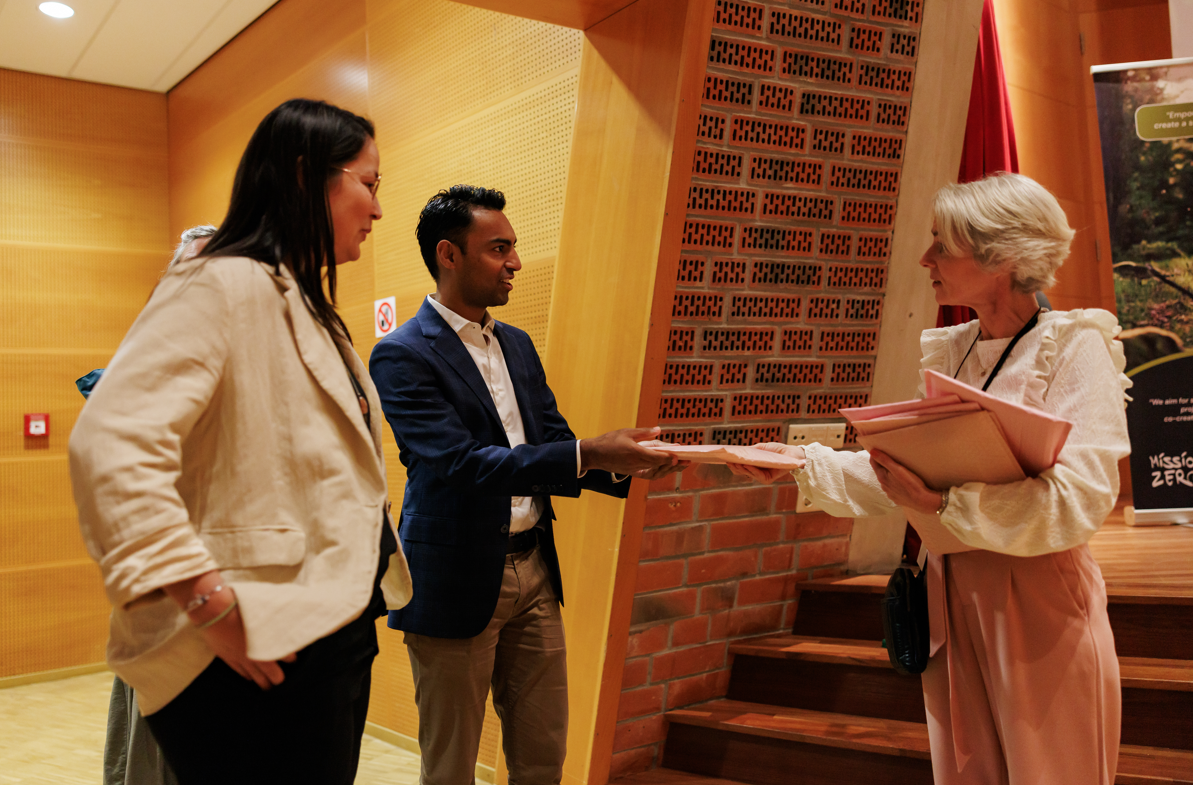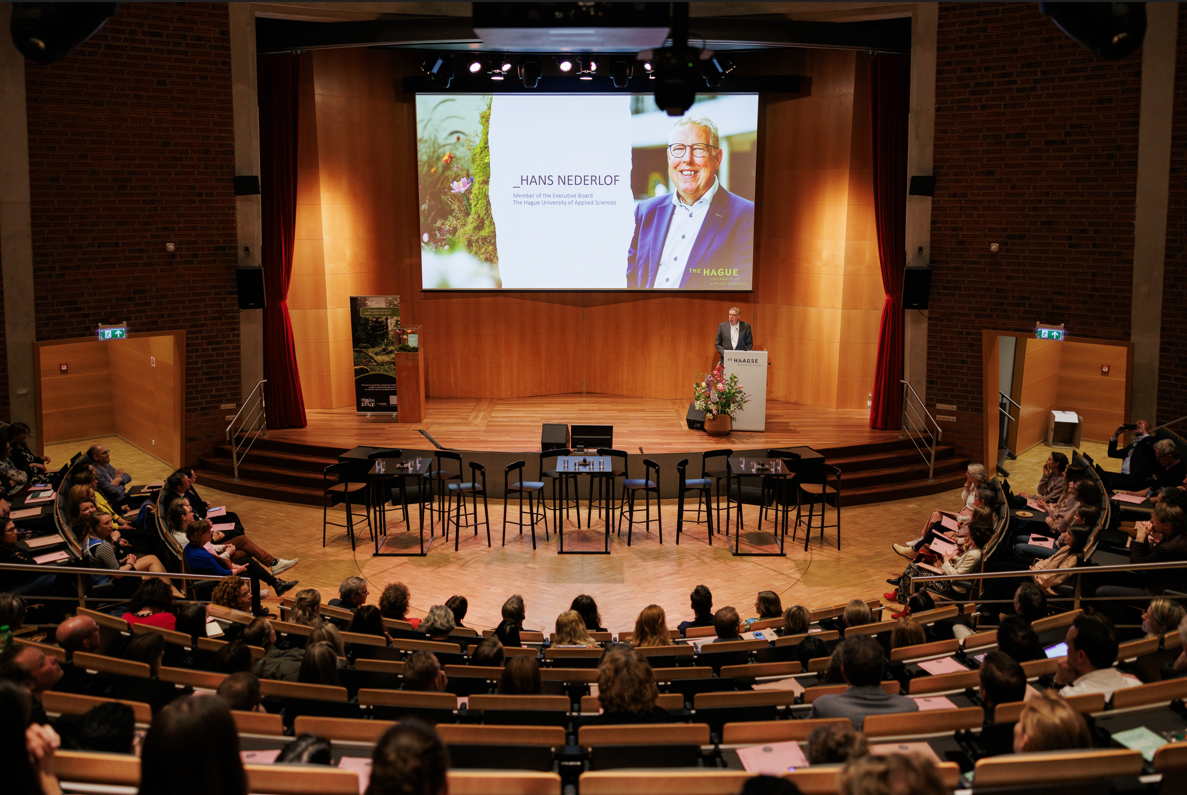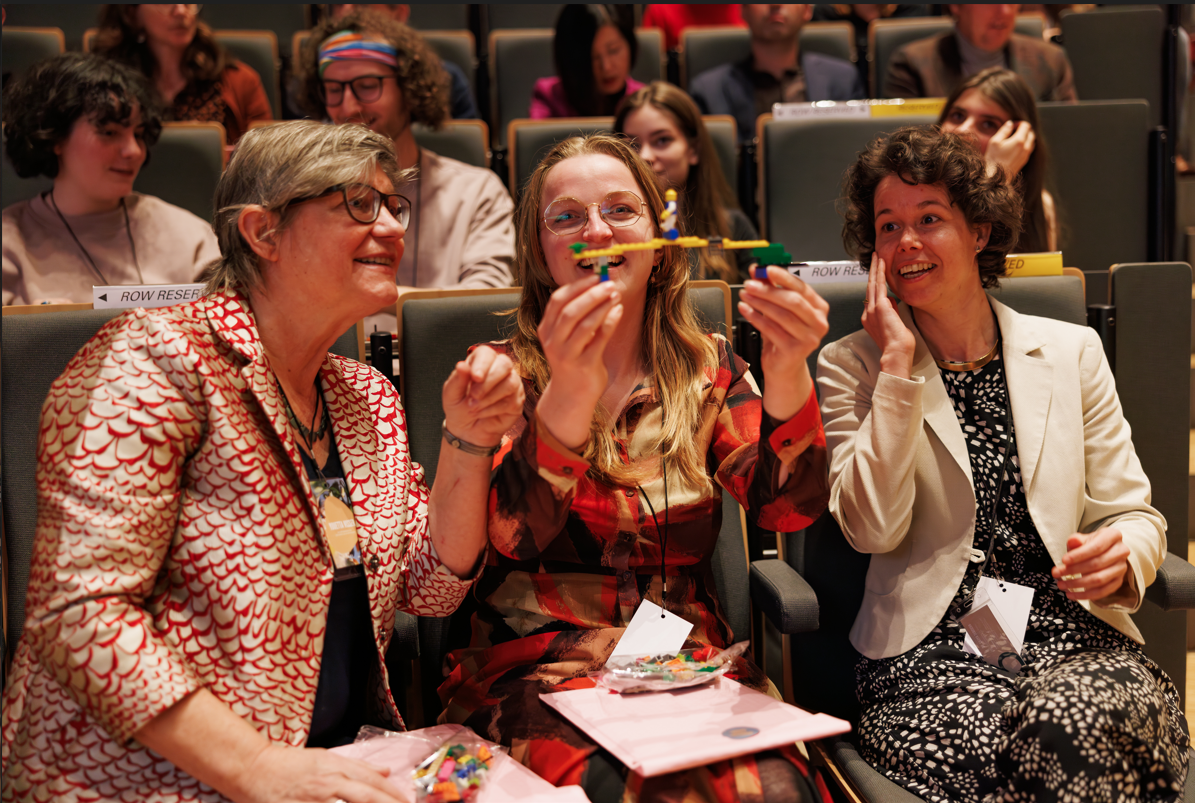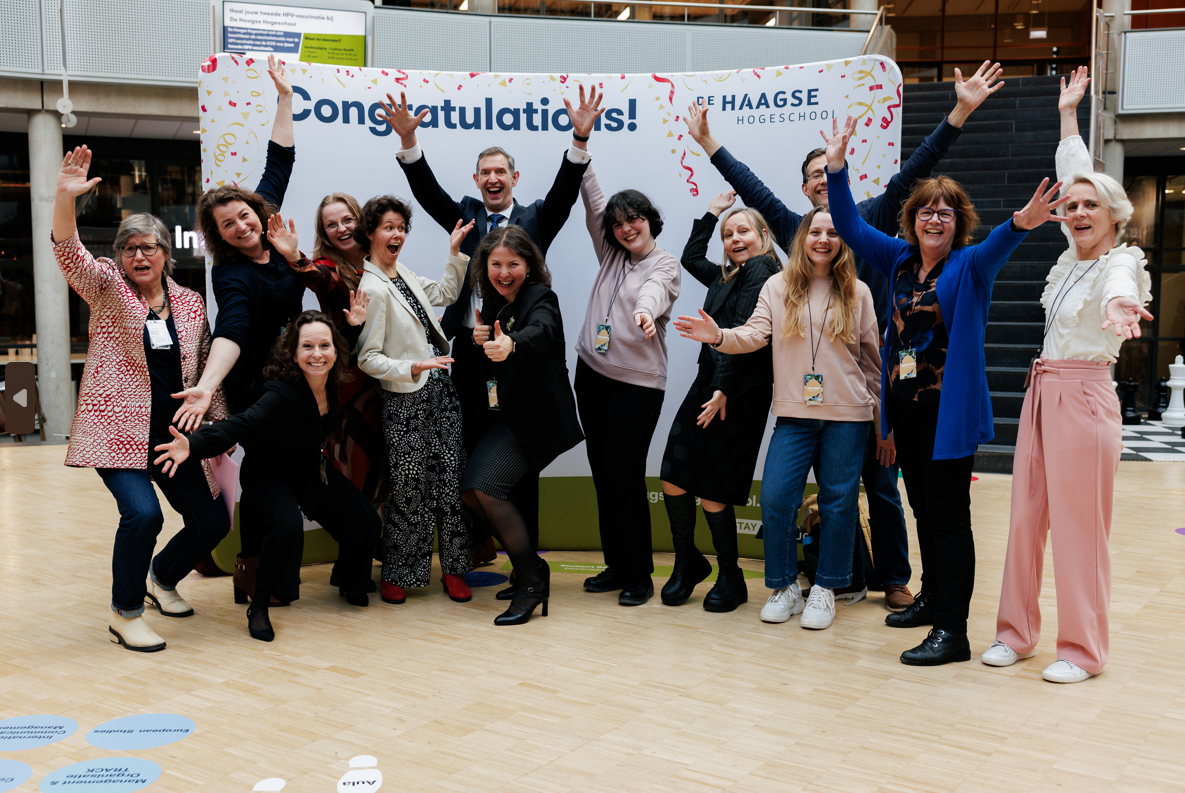Professor Liliya Terzieva leads networks to action
8 May 2024
Dr Liliya Terzieva pressed that today’s calling for sustainable change is an urgent one.
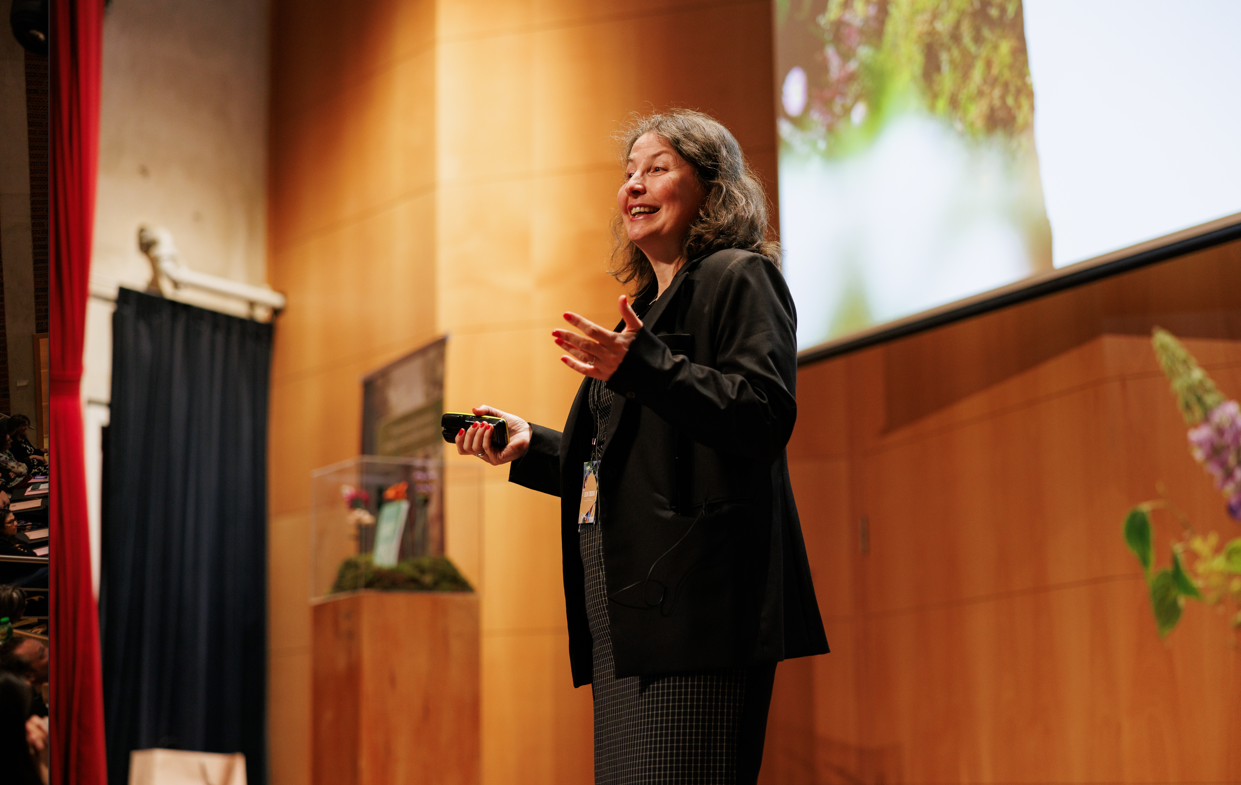
Dr Liliya Terzieva left a crystal clear message during her inauguration speech. She pressed that today’s calling for sustainable change is an urgent one. “We are beyond creating awareness: it is time to move to action. Working together in networks, expanding those networks and having them crosspollinate, we can accelerate and scale the impact of our endeavours.” As Mission Zero’s new Professor of Designing Value Networks, Liliya and her research group invited us to take part in the action and to change our future. A serious matter that – unexpectedly for some - asks for playfulness, curiosity and magic.
Whether it is the energy transition, moving towards a circular economy, sustainably rearranging our agricultural activities or another transition, we can only establish big societal changes by working together. This conviction has been the foundation of the former THUAS research groups Designerly Innovation and Innovation Networks and of the current variation Designing Value Networks. Liliya started off by acknowledging the founding and expanding work of the preceding professors Rianne Valkenburg and Christine De Lille. An impressive foundation has been created, which the current research group gratefully uses as a springboard for swift and focused action. Liliya: “With the tools and methodologies that have been developed over the years, we can take collaborative processes further.”
Experiencing the effects first hand
Before Liliya’s speech, audience members got a small taste of what these tools and methodologies are and how they work by participating in several workshops. One was an active showcase with tools for stakeholder engagement in living labs. Together, participants discussed, played and shared experiences, visions and opinions. This way, they experienced challenging each other to clarify expectations and ambitions while collaborating in multi-level stakeholder environments. In another interactive workshop, participants explored how systemic co-design can enable entrepreneurial ecosystems to contribute to transitions. The third workshop consisted of a panel discussion that presented four practice-based social cases the Designing Value Networks research group has been working on.
Awakening the systemic drive
Design is a big pillar within the research group. Designing how networks emerge, develop and connect with other networks is the main activity, but it is not only interactions that need to be designed. Liliya: “To step into the unknown with confidence, all citizens need the ability to design and redesign our future along the way. And in order to do that, we need creativity more than anything. This is a feature that AI struggles with, and that we as humans have put aside as ‘childish’. But it is creativity that awakens our drive. Creativity and playfulness activate our curiosity and endurance, which helps us to allow for solutions to emerge. This is where the magic happens
Navigating collaborative experiments
To reinforce her words, Liliya invited audience members to literally build bridges with Lego® blocks they had been given when they arrived. Once the individual bridges were finished, they were asked to try and connect the different bridges. Liliya visibly enjoyed watching the interactions. “It’s beautiful to observe and encounter the power of playfulness,” she said. “I already see all of you radiating, relating and exploring opportunities for deeper connections. This is what we’re talking about! And this can only happen when we invite different ways of thinking, clash perspectives and are open to acknowledging, appreciating and accepting other viewpoints. This is something we need to learn. Designing Value Networks helps by translating awareness into tangible experiments and offering tools to navigate them.”
Co-creating environments for fruitful interactions
Living labs are the allocated environments for experiments to take place. That is why Designing Value Networks conducts a lot of research in and, more importantly, on living labs. Research group member Anja Overdiek elaborated on the project Future Proof Labs, which aims to take learning and co-creating in living labs to the next level. This means learning how to truly co-create in an equal manner, determining and developing skills to facilitate labs, scaling what has been co-created and involving more people. Liliya: “We look beyond the innovations, bearing in mind the growth of entire ecosystems. For example by enabling connectors to take the role of hubs for crosspollination.”
Locally, nationally, internationally
Next, research group members Armand van Oostrom and Heleen Geerts shared how Designing Value Networks stimulates entrepreneurship as a competence across various local and national networks. Liliya explained that this is because, next to creativity and playfulness, entrepreneurship has an important role in awakening the desire for transitions. She also highlighted a few of the many other networks in which the research group brings learned lessons into action. “We try to extrapolate the outcomes of different experiments and stimulate communities to share their learned lessons. Internationally, nationally and regionally, but also
From a hierarchical to a network mindset
In order for networks to be successful and generate real impact, it is important for network members to change their thinking. Namely, they have to shift from a hierarchical mindset to a networking mindset and from hierarchical leadership to network leadership. To illustrate what this means, a creative documentary was played, which showed how students are engaged in the research group’s activities. In this video, student and research assistant Ju Laclau Massaglia says: “As students we have a lot to learn but also a lot to offer. This environment allows me to give what I have to give, but also to learn everything I’m interested in. It really is a two-way street.” Many examples were shown of how education and the professional field raise each other to even greater heights through research.
“So much is still to be discovered!”
At the end of the lecture, Liliya was able to officially pick one of the many fruits of last year’s work. The book Accelerating and Scaling, which she wrote together with Prof. Christine De Lille and Dr Katinka Bergema, was launched. It contains lessons and views of more than 35 (experiential) experts on working, learning and creating societal impact in networks. It is the first book of its kind, exploring the unknown field of creating optimal impact in societal challenges in networks. It will the first of many hopefully, because there is still a lot to be unravelled. As Liliya put it towards the end of the afternoon, “This is also where the beauty lies. So much is yet unknown and still to be discovered!” We wish her, her team and everyone she encounters along the way an exciting and beautiful journey.
About Liliya
Liliya Terzieva has been our Professor of Designing Value Networks at the Faculty of Business, Finance & Marketing at THUAS since 11 April 2023. The research group is one of the four research groups at the Centre of Expertise Mission Zero. Liliya has a PhD in the field of Economic and Organizational Sciences in Leisure and Tourism. She pays special attention to combining experiences, innovation and competitiveness. She has about 20 years of international experience in various sectors, from nonprofit to business. Her work has focused on entrepreneurial learning, value creation, leadership, innovative education and learning, development and quality assurance. Liliya is a member of the editorial board of a range of journals. She is an active partner and member of the Worldwide Association of Female Professionals. She also works as an external evaluator and co-creator of EU-funded projects.
